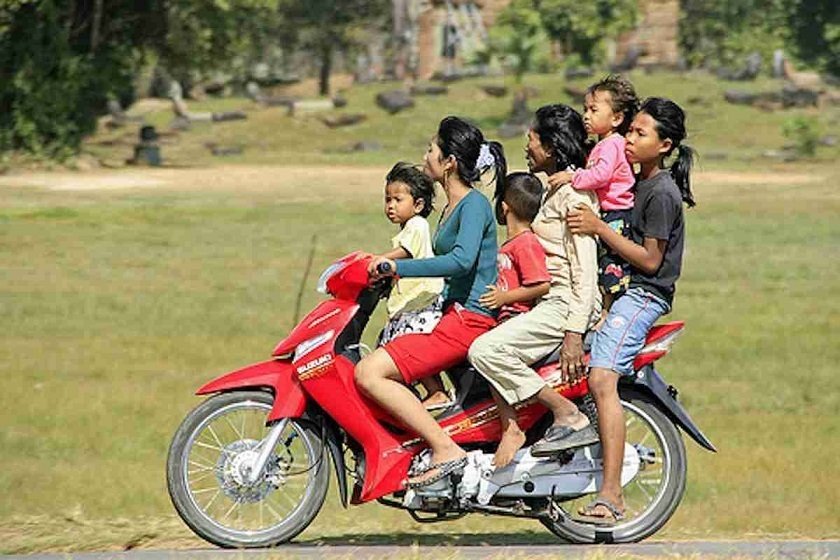One of the major reasons that road safety campaigns have failed in Thailand is their broad scope, and a failure to address the problem at its core.
Road safety campaigns, including anti-drunk driving measures for festivals like Songkran and New Year, have primarily focused on large vehicles — public buses and private vehicles.
But in reality, data released by the Interior Ministry showed that 74.4% of all road accidents involved motorcycles.
Looking closer, recklessness was a major factor. Only about 53% of motorcyclists and 19% of pillion riders wore helmets
According to the latest information from the ThaiHealth Foundation’s Social Mobilisation for Motorcycle Safety Project, an average of two motorcyclists die every hour.
Furthermore, about 10 million motorcyclists in Thailand do not have driver’s licences.
Given that there are 21.1 million motorcycles registered with the Land Transport Department, this means almost half of the population routinely breaks the law.
The biggest and most pertinent question is: How can the government let this happen? With such a large number of motorcyclists roaming the roads without driving licences and some without helmets, there must be something wrong with law enforcement.
There are also many motorcyclists still riding against traffic or on pavements, posing a risk not to themselves but also to the public at large.
So, the government needs to rethink its road safety campaign by targeting motorcycles.
There is no better time to start than this Songkran holiday. The government should launch a campaign about the importance of wearing a helmet — or even offer free helmets if need be.
Motorcyclists who get injured — or disabled — in a crash are a burden to the state budget one way or the other.
It will require stringent efforts on the part of the police and transport officials to discourage those who violate the law.
front photo
Terrible example to set. Road safety campaigners were quick to point out the dangers of riding a motorbike without a helmet.




